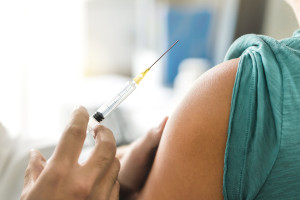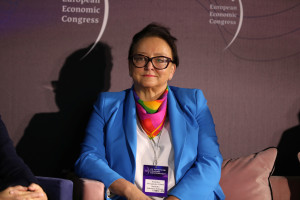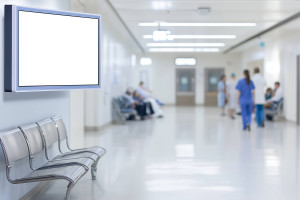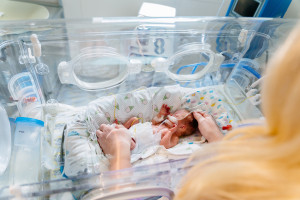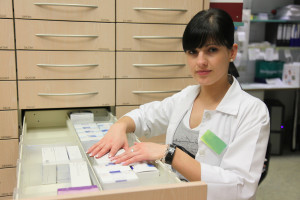7 times slower. Huge differences in access to new drugs in Europe. Companies are also responsible

- Poland has maintained 20th place among 36 analysed countries in Europe in terms of access to innovative therapies, according to the WAIT Indicator study
- At the same time, the number of reimbursed therapies decreased from 69 to 68, and the level of accessibility decreased from 41 percent to 39 percent.
- The report also shows that the average waiting time for reimbursement in the European Union has increased from 531 to 578 days. The differences between countries are still significant and still reach more than 2 years.
- Patients in one EU country can gain access to a new treatment up to 7 times faster than in another Member State
- Companies also decide how quickly a given therapy will be made available to patients. They first seek reimbursement in countries where they can get a higher price.
- - Poland's problem is the lack of applications, which appear in our system with a considerable delay - said Mateusz Oczkowski, deputy director of the Department of Drug Policy and Pharmacy at the Ministry of Health.
Poland slows down and maintains 20th position in Europe in terms of access to innovative therapies. Shorter waiting time for reimbursement, but most drugs still with restrictions - according to the WAIT Indicator study.
The European Federation of Pharmaceutical Industries and Associations (EFPIA) has published the latest results of its annual WAIT (Waiting to Access Innovative Therapies) study, which analyses the accessibility of innovative therapies to patients in Europe.
In the EFPIA ranking, the highest percentage of reimbursed therapies was recorded in Germany (156), Italy (143) and Austria (142). Poland maintained 20th place among the 36 countries analyzed, but the number of reimbursed therapies dropped from 69 to 68, and the level of accessibility decreased from 41 percent to 39 percent.
According to the results of this year's study, 68 out of 173 innovative therapies (registered in 2020-2023) are reimbursed in Poland. This means that patients in our country have access to 39 percent of the drugs included in the ranking, while the EU average is 46 percent. For comparison, in last year's study, 69 out of 167 therapies (41 percent) were reimbursed. Since in the 2023 study, Poland moved up by as many as 5 places compared to the 2022 edition, this year's results may signal the beginning of a halt in the positive trend observed in previous years - the authors of the study assess.
Poland remains in the ranking ahead of Hungary, Romania, Bulgaria and the Baltic countries, also ahead of Ireland and Norway. However, we are overtaken not only by the other countries of Western Europe, but also by Slovenia, Bulgaria and the Czech Republic – the leader of the Central and Eastern European region, which occupy a high 7th position.
Of the 68 reimbursed therapies in Poland, as many as 85% are available with restrictions – for example, only for patients at a specific stage of the disease or those who meet additional conditions of the drug program. This is a worse result than last year, when this percentage was 83%, and the year before – 78% – and still one of the highest levels in Europe.
A positive sign is the shortening of the average time from drug registration to reimbursement. It currently stands at 723 days – 81 days less than a year ago. Despite this improvement, Poland still remains at the bottom of the ranking, ahead of only Bulgaria, Slovakia, Lithuania, Romania, Portugal and Malta in the EU. For comparison, patients in Germany wait an average of 128 days, and in Austria – 309.
The report also shows that the average waiting time for reimbursement in the European Union has increased from 531 to 578 days. The differences between countries are still significant and still exceed 2 years – patients in one EU country can gain access to a new therapy up to 7 times faster than in another Member State.
Many of the barriers are systemic: differences in reimbursement procedures, the complexity of HTA assessment, and local budget and infrastructure constraints.
This year's data can be seen as a warning signal.The situation of oncology patients and those suffering from rare diseases in Poland remains difficult, although one cannot help but notice that new drugs or new indications for their use appear on subsequent reimbursement lists.
In the area of oncology, 27 innovative drug therapies are reimbursed, which gives us access at a level of 48 percent and positions Poland just above the European average, which is 50 percent. However, as many as 96 percent of them are still available only to selected groups of patients - most often due to detailed criteria of drug programs, such as the stage of disease advancement, specific biomarkers or previously completed lines of treatment.
Compared to last year’s study, the waiting time for patients to receive oncological reimbursement decisions has been shortened by over 2 months (65 days) and now stands at 762 days.
The situation is similar in rare diseases. Polish patients have access to 25 reimbursed therapies, which gives an availability of 38% compared to the European average of 42%, and 92% of them are available to patients with limitations.
The time from registration to reimbursement of orphan drugs was shortened by only 7 days and in the current study it amounted to 743 days.
- After Poland's historic advancement by 5 places in the ranking of access to innovative therapies in 2023 and maintaining the positive trend last year, this year's data can be interpreted as a warning signal. We managed to maintain 20th position in the ranking of European countries, while the very high percentage of reimbursed therapies with restrictions and the still long waiting time for reimbursement show how much remains to be done in the entire system - emphasizes Michał Byliniak, general director of the Employers' Association of Innovative Pharmaceutical Companies INFARMA.
On May 22, the latest update of the Access GAP platform will also be published, providing a detailed comparison of the availability of medicines and diagnostics in the Visegrad Group countries. These results will provide additional information on real inequalities and points of intervention.
Decisions and strategies of companies are decisiveIn recent years, there has been an acceleration in the reimbursement of innovative drugs. At the same time, the ministry indicates that waiting times for therapies are also the result of companies not submitting applications.
- Applications are coming to us with a significant delay. In reality, Poland's problem is the lack of applications, which appear in our system with a significant delay - said Mateusz Oczkowski, deputy director of the Department of Drug Policy and Pharmacy at the Ministry of Health, on numerous occasions.
He added that the average waiting time for applications for innovative therapies in Poland is 2.5 years: - We process the application in about 240 days. Of course, we can do it faster, but if there are no applications, the reimbursement process does not start in Poland. Another element that is repeatedly raised and measured by EFPIA, Polish reimbursement radars and other lists is the slow processing of applications. But this slow processing of applications is certainly not the fault of the Ministry of Health, but rather the fault of reimbursement applications from the moment of registering a given indication to the moment of submitting the application itself by the company - he enumerated.
This is primarily due to external referentiality, i.e. the complex network of dependencies between individual countries in the European Union, which country to go to first in order to maintain your product in good financial condition, at a good price and to develop a strategy for years to come in order to survive on the market with very good financial conditions without any damage in individual countries.
Companies first enter markets where they get a better price. Poland is not a leader in this respect, and the prices obtained would negatively affect the level of prices obtained in other countries.
Another problem is the narrow indications. The company itself applies for such a range of indications. As Mateusz Oczkowski emphasized, this is also the effect of the entities' strategy.
- First, there is a certain limitation in the drug program, then every two years the company applies for an extension, arguing that the criteria are inconsistent with the guidelines, but it does not reduce the price to the new population, which is many times larger - he explained.
Copyrighted material - reprint rules are specified in the regulations .
rynekzdrowia



